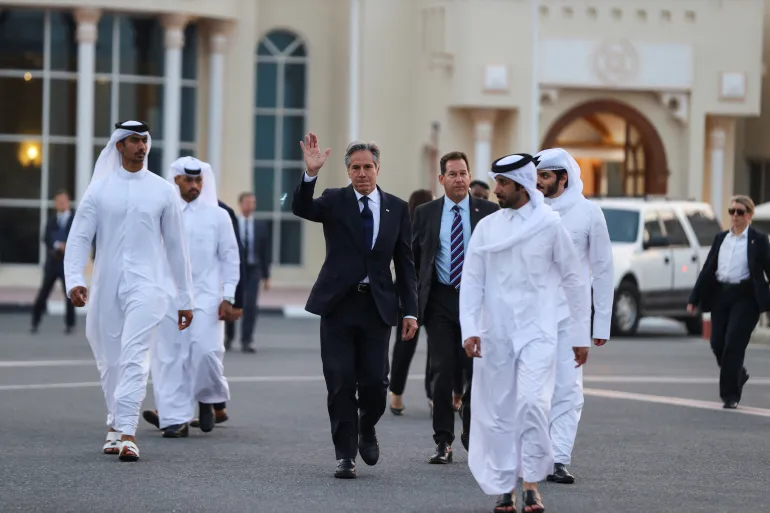
Timeline
- CIA Director William Burns and White House coordinator for the Middle East and North Africa Brett McGurk arrived in Cairo on July 8 to discuss Egypt-Gaza border security and the re-opening of the Rafah crossing, both of which are “key issues to solve ahead of a possible hostage and ceasefire deal between Israel and Hamas.”
- July 9 reporting indicates that “significant progress” was made during this week’s hostage-for-ceasefire negotiations in Cairo, where American, Israeli, and Egyptian officials were present.
- On July 10, officials from Egypt, Qatar, the United States and Israel convened in Doha, Qatar to resume ceasefire talks.
- These discussions come after a senior U.S. administration official signaled a potential “breakthrough” in a possible Israel-Hamas ceasefire, citing that Hamas made “a pretty significant adjustment in its position.”
- Though, the source communicated, there are still unsettled concerns regarding the implementation of the plan.
Changes in Hamas’ Position
- The current version of this potential deal is expected to feature a “full and complete” six-week ceasefire, an exchange of sick and female hostages in Gaza for Palestinian prisoners in Israel, and an Israeli withdrawal from populated areas of the Strip.
- During this period, the second phase of the deal would be negotiated, which would include additional hostage-for-prisoner exchanges.
- The third phase would finalize the return of remaining hostages and launch a reconstruction project in Gaza.
- July 4 reporting indicated that Hamas changed its conditions, “abandoning its demand for an Israeli commitment in writing to a permanent ceasefire at the end of the initial 45-day phase of the plan.”
- Instead, the group was said to accept international guarantees that discussions regarding a permanent ceasefire would begin during the first phase of the ceasefire with the possibility to continue in the second phase.
- The group also softened its stance on a complete and immediate Israeli withdrawal and is now open to a gradual withdrawal.
- Hamas has demanded written commitments regarding these negotiation conditions from the U.S., Qatar, and Egypt, though Israel has refuted the request for these commitments to be outlined in writing.
- Israel believes a commitment in writing would open the possibility for indefinite negotiations during the second phase of the ceasefire. Senior Israeli officials expressed concern that, “in such a scenario, it would be very difficult for Israel to resume fighting without it being considered a violation of the agreement.
Background:
- Ceasefire negotiations are at risk of going “back to square one” according to a Hamas official, due to Netanyahu’s non-negotiables and the latest ongoing military operations in Gaza, consisting of tank fire and airstrikes.
- Hamas leaders warned that these operations could lead to “disastrous repercussions” for ceasefire talks and a hostage deal.
- Now in its ninth month, the Israel-Hamas war has gone through stalemates and sporadic negotiations since the temporary truce and hostage deal at the end of November 2023.
(Banner image: Ibraheem Al Omari/Pool/Reuters)
